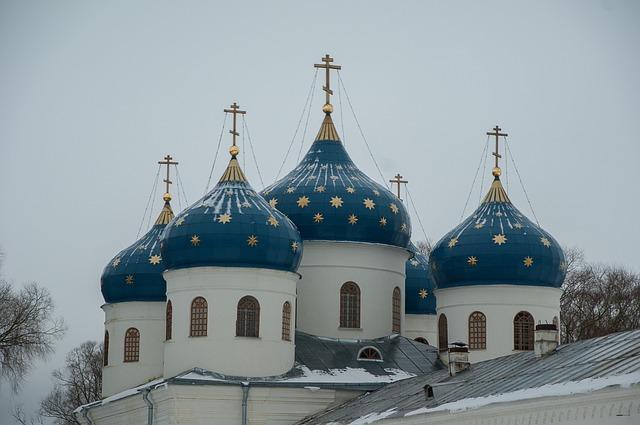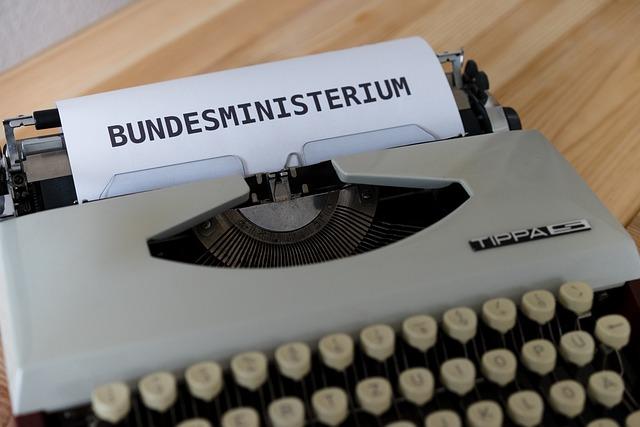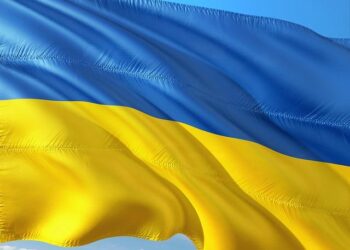The Perils of ŌĆ£Russia FirstŌĆØ: Analyzing the Geopolitical Implications
In the complex landscape of international relations, the notion of prioritizing one nationŌĆÖs interests above all else can yield profound consequences. As the geopolitical chessboard shifts, the “Russia First” doctrine emerges as a critical point of contention among policymakers and analysts alike. This approach not only redefines alliances and adversarial relationships but also raises questions about the stability of global order. In this article,we delve into the implications of adopting a Russia-centric foreign policy,examining its potential to exacerbate tensions,undermine democratic institutions,and challenge the balance of power in an increasingly multipolar world. Through a comprehensive analysis of historical precedents, strategic outcomes, and expert insights, we seek to illuminate the risks that accompany such a narrow focus in the ever-evolving arena of foreign affairs.
The Historical Context of Russia First Policies
The “Russia First” policies stem from a complex historical backdrop that has considerably shaped the countryŌĆÖs foreign relations and national identity. Beginning in the late 19th century, the Russian Empire sought to expand its influence across Europe and Asia, often in direct conflict with Western powers. The aftermath of the World Wars and the subsequent Cold War era solidified an adversarial relationship with the West, fostering a sense of siege mentality that is still prevalent today. Key elements of this context include:
- The impact of imperial ambitions: Historical expansionism left Russia with a legacy of diverse ethnicities and territorial disputes.
- The Cold War dichotomy: The ideological divide between communism and capitalism fueled a persistent narrative of distrust towards Western nations.
- Globalization and NATO expansion: As NATO expanded eastward post-1991, Russia perceived this as a direct threat to its sovereignty.
In contemporary times, the principle of prioritizing national interests over international cooperation continues to resonate.The resurgence of nationalism under recent leadership can be traced back to the disillusionment with the West following the collapse of the soviet Union, which manny Russians view as a period of humiliation. This shift in policy is marked by several critical factors:
| Factor | Description |
|---|---|
| Economic Sanctions | Imposition of sanctions post-Crimea annexation, reinforcing a narrative of external threat. |
| Military Engagements | Involvement in conflicts in Ukraine and Syria to assert influence and demonstrate strength. |
| Propaganda and Media Control | Utilization of state media to shape public perception and justify “Russia First” policies. |

Assessing the Geopolitical Ramifications of Emphasizing Russia
Focusing on Russia in international policy not only shapes bilateral relations but also reverberates across multiple regions. By prioritizing moscow, the global community risks unintended consequences, such as fostering increased tensions in Eastern Europe and inadvertently driving nations towards militarization in response. Some key points to consider include:
- Increased NATO Tensions: A ŌĆ£Russia FirstŌĆØ approach may provoke heightened military maneuvers in Eastern Europe.
- Energy Security Risks: Countries dependent on Russian gas could face destabilizing supply threats as geopolitical conflicts escalate.
- Alliance Realignments: Nations might seek new partnerships, altering customary alliances and shifting geopolitical balances.
Furthermore, such an emphasis can inadvertently lend legitimacy to Moscow’s authoritarian policies, undermining global democratic norms. The potential backlash against a Russia-centric stance can manifest in several domains:
| domain | Response |
|---|---|
| Eastern Europe | Increased NATO presence and regional fortification. |
| Global Energy markets | Shift towards alternative energy sources to reduce dependence. |
| International Alliances | Emergence of new coalitions opposing Russian influence. |
as policymakers assess these ramifications, it’s crucial they balance security concerns with the promotion of global stability and democratic values, avoiding a strategy that solidifies authoritarian regimes while alienating potential allies.

The Economic consequences of a Russia-Centric Strategy
The adoption of a strategy that prioritizes Russia carries a range of dire economic implications for both domestic and international stakeholders. A Russia-centric approach could lead to increased volatility in global markets,particularly in energy prices,as geopolitical tensions exacerbate trade uncertainties. This strategy risks alienating key economic partners, consequently leading to potential sanctions and reduced foreign investment. Key issues to consider include:
- Increased Energy Dependency: A reliance on Russian energy resources can create vulnerabilities, especially in times of conflict.
- Market isolation: Prioritizing Russia may push other nations to seek alternative partners, eroding market stability.
- Investment Deterioration: Investors may withdraw their capital, fearing political instability and an unreliable business surroundings.
In addition, the ramifications extend well beyond immediate financial metrics, perhaps destabilizing entire regions.Countries that align too closely with Russia could find themselves facing economic repercussions from the broader international community, particularly regarding trade sanctions.This alienation could create a ripple effect, impacting domestic industries reliant on exports and foreign alliances. A closer examination reveals that the economic landscape could shift dramatically, driven by:
| Potential Economic impact | Description |
|---|---|
| Sanctions Impact | Reduced trade opportunities due to punitive measures by other nations. |
| reduced Foreign Direct Investment | Decrease in capital inflow from businesses wary of geopolitical risks. |
| Instability in Global markets | Fluctuations in commodity prices, particularly energy, due to geopolitical tensions. |

Navigating diplomatic Relationships in a Polarized Climate
The contemporary diplomatic landscape is marred by deeply entrenched ideological divides, making international relations increasingly complex. Nations are frequently enough compelled to adopt a stance that prioritizes immediate strategic gains over long-term global cooperation. Such an approach, particularly one that aligns with a ŌĆ£Russia FirstŌĆØ doctrine, risks alienating potential allies and deepening existing fractures. as the geopolitical climate shifts, policymakers must reconcile domestic pressures with the necessity of maintaining dialog across ideological divides. This requires a nuanced understanding of global dynamics, where transparency, calibration of ultimatums, and multilateral engagement are essential tools in fostering resilient diplomatic ties.
Challenges abound as leaders navigate this precarious terrain. The potential for miscalculations looms large, with decisions shaped more by domestic political calculus than by a coherent foreign policy framework. Goods and services,international security protocols,and cultural exchanges become battlegrounds in this polarized climate. Given this backdrop, the following points merit consideration:
- Flexibility in Alliances: Countries must remain adaptable, forming coalitions that transcend ideological lines.
- Constructive Engagement: Ongoing communication with rivals can defuse tensions and establish common ground.
- Public Diplomacy: Information campaigns that promote transparency can help to mitigate suspicions and enhance mutual understanding.
As we reflect on these dynamics, itŌĆÖs evident that addressing the risks associated with a unilateralist stance, such as ŌĆ£Russia First,ŌĆØ requires innovative strategies and a commitment to fostering inclusive dialogue. The potential fallout of neglecting this can lead not only to the deterioration of bilateral relationships but also to an increasingly fragmented world order.

Recommendations for a Balanced foreign Policy Approach
To foster a diplomatic landscape that prioritizes national interests while acknowledging global interdependencies, it’s essential to adopt a multipronged strategy. A balanced foreign policy should focus on strengthening alliances with democratic nations, emphasizing collaborative security arrangements, and promoting economic partnerships. Consider the following key initiatives:
- Engagement with NATO: Reinforce commitments to NATO partners while encouraging burden-sharing within the alliance.
- Strengthening pacific Allies: Expand partnerships in Asia to counterbalance authoritarian influences, keeping democratic values at the forefront.
- Energy Independence: Invest in renewable energy initiatives to reduce reliance on unfriendly regimes and enhance national security.
Furthermore, it is critical to adopt a pragmatic stance regarding adversaries, incorporating diplomacy as a key tool. Engaging in dialogue, while not sacrificing core principles, can help de-escalate tensions and pave the way for conflict resolution. The following approaches can be integrated:
| Strategic Focus | Action Item |
|---|---|
| Diplomatic Channels | Maintain direct lines of communication with Russia and China to mitigate misunderstandings. |
| Comprehensive sanctions | Implement targeted sanctions that minimize collateral damage while holding aggressors accountable. |
| Cultural Exchange | Promote cultural exchanges to foster mutual understanding and reduce hostility. |

Lessons Learned from Global Responses to Russia First Strategies
The global reactions to strategies prioritizing Russia have illuminated critical insights about international diplomacy and conflict resolution.Key takeaways from these responses underscore the complexity of negotiating with a nation that often employs aggressive tactics. Among the lessons learned are:
- Cohesion Among Allies: A unified front among Western and allied nations has proven essential in counteracting Russia’s maneuvers. Consistent communication and shared objectives have fostered a stronger deterrent.
- Economic sanctions as Tools: Targeted economic sanctions can pressurize Russia, but their effectiveness relies on global cooperation and long-term commitment.
- Public Opinion Matters: Mobilizing public support within nations has critical implications for foreign policy, influencing governmental decisions in times of crisis.
- Historical Context is Key: Understanding historical precedents helps clarify current conflicts, revealing patterns that inform strategic choices.
Moreover, an emerging framework for addressing RussiaŌĆÖs geopolitical strategies highlights the need for balanced approaches that integrate diplomacy with defensive posturing.Countries can adopt measures such as:
| Response Strategy | Description |
|---|---|
| Diplomatic Engagement | Engaging in dialogue to address mutual concerns and reduce miscalculations. |
| Military Preparedness | Enhancing military readiness to deter potential aggression. |
| Cybersecurity Enhancements | Strengthening defenses against cyber threats as a key aspect of national security. |

In Retrospect
the “Russia First” approach presents notable challenges and risks that cannot be overlooked. While proponents argue for a recalibrated foreign policy that prioritizes pragmatic dealings with Moscow, the historical context and contemporary implications suggest a precarious path. As nations grapple with the implications of russia’s assertive stance on the global stage,it is indeed imperative to understand that engaging with such a complex player requires a nuanced strategy that balances cooperation with vigilance. The lessons drawn from recent geopolitical tensions underscore the importance of a multidimensional foreign policy that prioritizes collective security and democratic values. As we navigate this delicate landscape, it is essential for policymakers to remain vigilant against the allure of short-term gains that may undermine long-term stability. Only through a comprehensive approach can the international community hope to address the broader implications of Russia’s actions and foster a more secure and cooperative global order.
















